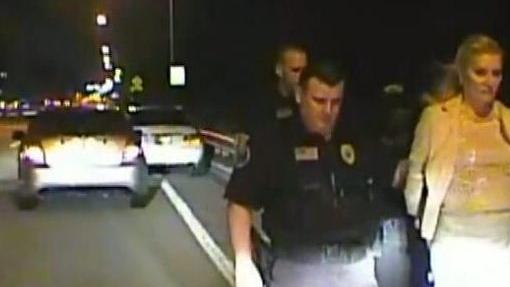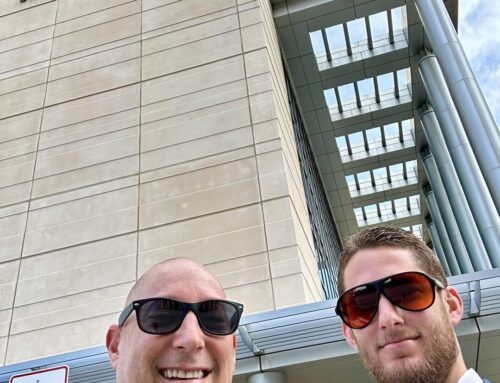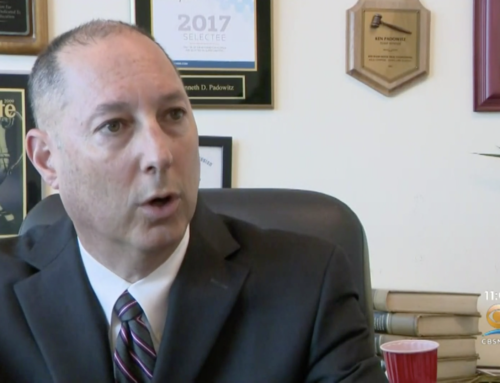September 4th, 2015
The summer has been a challenging one for Broward judges accused of misconduct. One has already been removed from her job and is fighting to get it back. Another is fighting to keep her job after the state’s highest court rejected a lighter penalty for misconduct. And a third is hoping the same court will accept a suspension instead of a tougher sanction.
The summer has been a challenging one for Broward judges accused of misconduct.
One has already been removed from her job and is fighting to get it back. Another is fighting to keep her job after the state’s highest court rejected a lighter penalty for misconduct. And a third is hoping the same court will accept a suspension instead of a tougher sanction.
“It’s been a never-ending parade of embarrassments,” said attorney Bill Gelin, who runs the courthouse news and gossip website JAABlog. “Things seem to be going from worse to worse.”
The Florida Supreme Court brought the hammer down on Broward Circuit Judge Laura Marie Watson on June 18, ordering her removal over misconduct that took place years before she became a judge.
Circuit Judge Cynthia Imperato, who was convicted last December of drunken driving and sentenced to 20 days of house arrest, reached an agreement with the Judicial Qualifications Commission in March that would have suspended her from her job for the same time period.
The Florida Supreme Court, which has the final say on the matter, rejected the deal and ordered a full hearing to determine the appropriate sanctions. Imperato’s hearing is scheduled to begin Thursday in West Palm Beach.
The court’s rejection of Imperato’s deal demonstrates that the third jurist, Circuit Judge Lynn Rosenthal, cannot guarantee the deal she reached with the JQC will be honored.
Rosenthal was accused of DUI in May 2014 after showing up to work driving erratically. On her way into the courthouse parking lot, she struck a parked Broward Sheriff’s Office patrol vehicle, then struck the entrance gate to the judge’s parking area.
She admitted to investigators that she had taken an accidental overdose of the prescription sleeping aid Ambien the night before the incident. She had no alcohol in her system, according to a breath test administered by deputies who arrested her.
Prosecutors later said there was Xanax in her car, but it was impossible to say whether she was under the influence of the drug because Rosenthal refused to submit to a blood or urine test.
The JQC recommended a 90-day suspension without pay for Rosenthal, who also admitted recording part of her drive to work that morning on her cellphone. She showed the video to deputies, but after her phone was returned, her husband deleted the footage, according to the JQC.
Phone messages left with attorneys representing Imperato and Rosenthal were not returned Friday.
“When you’re a judge, you’re held to a different standard,” said Broward Public Defender Howard Finkelstein. “When a citizen invokes their constitutional rights, nobody has a problem with that. But when you’re a judge and you exercise those rights – no one holds that against you as a citizen. But as a judge, this creates a serious problem with how the public is going to view any decisions they make.”
Former prosecutor Ken Padowitz, now a defense attorney, agreed.
“It is problematic,” he said. “Does that mean they can’t function effectively? Not necessarily. Ultimately the Supreme Court has to make the decision about what is the most appropriate sanction.”
But Gelin said the deals reached with Imperato and Rosenthal, criminal court judges who did not cooperate with law enforcement when they were accused of a misdemeanor, reveal a reluctance to hold judges accountable.
“It’s hard to believe the JQC can do such an effective job of uncovering misconduct and then turn around and basically say this is acceptable behavior from someone on the bench,” he said.
In Rosenthal’s case, Gelin took umbrage at the destruction of her cellphone video and said it hindered an investigation, which the JQC noted in its suspension recommendation.
“I believe the Florida Supreme Court is going to have no choice but to remove her from office,” he said. “They can’t set a precedent like this.”
Finkelstein was less sure.
“I believe in second chances,” he said. “The court needs to ask, do they have substance abuse problems and are they in recovery? If they do, and they’re in recovery, I don’t see any reason to remove them.”
Watson was accused of brokering a settlement agreement with an insurance company while freezing out other attorneys who had related cases in a series of lawsuits filed in 2002. She became a judge in 2012, but the Judicial Qualifications Commission decided that she still needed to be held accountable for misconduct while she was an attorney.
The JQC recommended her removal, and the state supreme court agreed.
Watson appealed and lost, but in court papers filed Aug. 31, she indicated that she would be taking her appeal to the U.S. Supreme Court.
Her attorney, Robert Sweetapple, could not be reached Friday despite a call to his office and an e-mail.






